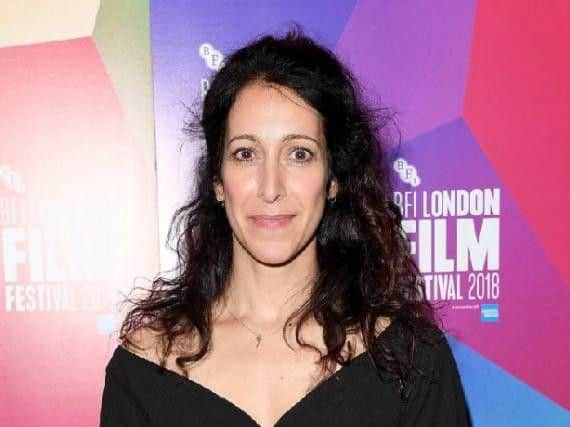Harry Wootliff: No wonder there is bias, judging panels are made up of white, privileged men
She is one of the few women given the nod in this year's Bafta shortlist - for outstanding debut by a British director - for her acclaimed movie Only You, set in Glasgow. It has already landed her the British Independent Film Award for best debut director.
Part of the problem, she believes, is judging panels are mainly made up of white, privileged men - and that they stick to the most popular, familiar films.
Advertisement
Hide Ad

"Things have to be changed so the Bafta membership is more balanced to reflect the people who are watching," she said. "I don't think it's a deliberate, it's an unconscious bias. As a Bafta member you are supposed to watch everything you can, but that doesn't happen.
"So films like Little Women, or films by minority groups, just don't get watched.
"You watch the films that have made the most noise. The ones with the most established directors and the biggest marketing budget."
The best director and best picture categories have been entirely made up of movies made by men for seven years running.
No black actors were given a nod in the best actor or best supporting actor categories either, with snubs for Jennifer Lopez, Eddie Murphy and last week's Golden Globe winner, Awkwafina.
Harry says the £450 annual fee paid by Bafta members, who vote to select the nominees, also excludes those breaking into the industry.
Advertisement
Hide Ad"If you have fewer white, privileged men the Bafta membership would watch different films, and we'd see different nominations each year," she said.
"There's an interesting situation with Little Women at the moment. I read that men aren't going to see it, and now it has largely been overlooked in the nominations. But I think once men get in the cinema, they enjoy a female narrative like Little Women.
Advertisement
Hide Ad"There's an unconscious bias there and, given the choice, if they're sent screeners for awards or invited to screenings, they won't bother."
Recent movies, such as Wonder Woman, Captain Marvel and Star Wars: The Rise Of Skywalker have put female heroes front and centre, but Harry believes the stories told by modern blockbusters are still traditional, male narratives.
"It's not just about having women directing movies, but women directing female-centred stories," added Harry.
"Women's stories are not considered universal in the same way stories about men - especially white men - are.
"You can have women at the centre of a movie, as long as it's in an action movie and she's behaving like a man.
"It's strange because it's deemed acceptable and cool for a woman to watch a man's film, but for a man to watch a woman's film doesn't have that same cachet." Praise is heaped on male directors such as Quentin Tarantino and Martin Scorsese for breaking rules and creating bold artistic statements, yet being outspoken works against women, according to Harry.
Advertisement
Hide Ad"As a director you're a leader but you're also supposed to be a maverick," she said.
"There are quite a lot of female producers because it's acceptable that we can be organisers. But not to be the maverick leader, to have the spark and genius that you're supposed to have as a director. That's not deemed as a female role."
Advertisement
Hide AdMaking sure women are seen as non-threatening and likeable is also an issue when Harry creates her films, as she discovered during the making of Only You, a drama starring Laia Costa as Elana.
"We were analysing and worrying that she was strong enough, but was she warm enough, was she likeable enough, was she too emotional, was she emotional enough?" said Harry.
"It felt like a fine line, we had to make sure to get the right balance. Whereas it felt with the male character, he could do just about anything and we felt everyone would still like him.
"I'd like to perceive women as strong and I want to show women who are strong but not in a male way.
"If you show emotions in a male-dominated society that's seen as weak and unacceptable. But perhaps showing more emotions and being vulnerable is the right way."